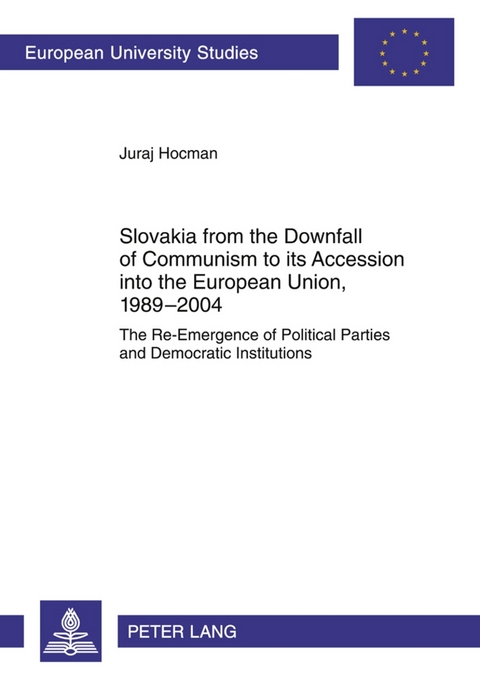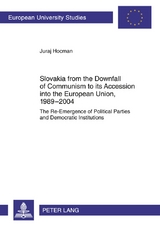Slovakia from the Downfall of Communism to its Accession into the European Union, 1989-2004
Peter Lang Gmbh, Internationaler Verlag Der Wissenschaften
978-3-631-61153-1 (ISBN)
Juraj Hocman holds a J.D. in International Law from the University of Pavol Jozef Šafárik in Košice (Slovakia), an MA in History and a postgraduate diploma in International Relations from Comenius University in Bratislava. He received a Master’s degree from the Institute of European, Russian and Eurasian Studies at Carleton University in Ottawa (Canada) and earned his doctorate in History at the University of Ottawa. The author specializes in the modern history of East Central Europe.
Contents: Slovak identity - Slovak nationalism - Magyarisation - Czechoslovakia - Slovak political nation - Communism - Velvet Revolution - Split of Czechoslovakia - Meciar governments - Privatization - Non-governmental sector - Slovak civil society - Election campaigns - Parliamentary elections in 1998 and in 2002 - Dzurinda governments - Accession into the European Union - Myths in Slovak national history - History as being versus history as seeming.
| Erscheint lt. Verlag | 13.5.2011 |
|---|---|
| Reihe/Serie | Europäische Hochschulschriften / European University Studies / Publications Universitaires Européennes ; 600 |
| Verlagsort | Frankfurt a.M. |
| Sprache | englisch |
| Maße | 148 x 210 mm |
| Gewicht | 430 g |
| Themenwelt | Geisteswissenschaften ► Geschichte ► Allgemeines / Lexika |
| Geisteswissenschaften ► Geschichte ► Regional- / Ländergeschichte | |
| Geschichte ► Teilgebiete der Geschichte ► Kulturgeschichte | |
| Sozialwissenschaften ► Politik / Verwaltung ► Allgemeines / Lexika | |
| Sozialwissenschaften ► Politik / Verwaltung ► Politische Systeme | |
| Sozialwissenschaften ► Politik / Verwaltung ► Politische Theorie | |
| Schlagworte | 1989 • 2004 • Accession • communism • democratic • downfall • Election campaigns • Emergence • European • from • Hocman • Institutions • Integration in European Union • into • Juraj • Parties • Political • post-communist Czechoslovakia • Slovakia • Slovak Socialist Republic • Union |
| ISBN-10 | 3-631-61153-6 / 3631611536 |
| ISBN-13 | 978-3-631-61153-1 / 9783631611531 |
| Zustand | Neuware |
| Haben Sie eine Frage zum Produkt? |
aus dem Bereich




